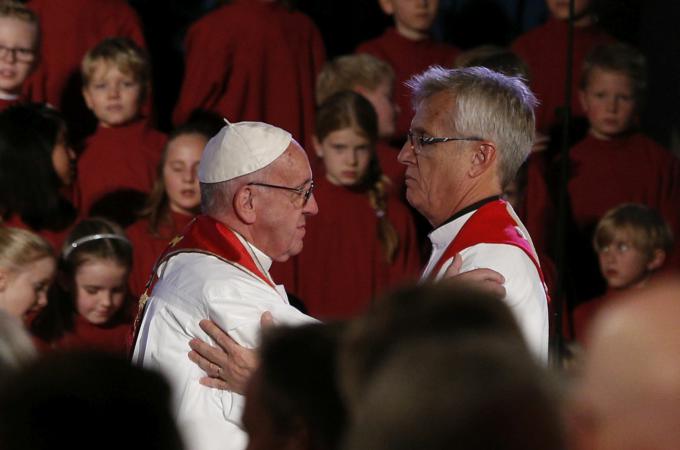Commemorating the Reformation: Churches Looking Together Toward 2017 -- and Beyond
At it's annual Fall conference, taking place this year September 23-25 at the Candler School of Theology outside of Atlanta, Georgia, the North American Academy of Ecumenists focused on "Commemorating the Reformation: Churches Looking Together Toward 2017 -- and Beyond."
The keynote speaker, Rev. Dr. William Rusch, professor of Lutheran Studies at Yale University and a longtime national ecumenical leader, reflected on how "commemorate" means to honor the memory of a person or event and how this is more fitting language for the upcoming year of events on the 500th anniversary of the Protestant Reformation than is "celebrate," which is to observe an event with joy.
Dr. Rusch noted how, historically, the Reformation has both supporters and detractors. For Protestants it restored the church; for Catholics it divided it. "This time around, however, we're emphasizing not just the past, but the future," he noted.
Is the Reformation anniversary to be seen as only a Lutheran-Roman Catholic event? Already other Reformed churches such as the Presbyterian and Methodist are objecting to what to them is "a Lutheran monopoly" of the Reformation anniversary events. They would have us all remember that there are some common, fundamental affirmations that point beyond Lutherans and Roman Catholics.
For starters, baptism is the basis of our unity. This is true for all Christians. Further, Jesus prayer for unity in John 17 ("that they all may be one") and Paul's words to the Ephesians to "be eager to maintain the spirit of unity in the bonds of peace" pertain to all Christians as well. In short, this commemoration of the Reformation encourages all Christians to give more visible expression to their unity in a hostile and fearful world.
A constant theme in the ecumenical movement that has marked the last century has been the visible unity of the Church of Jesus Christ. "It's obvious that the Reformation split or severed the Church," reflected Dr. Rusch, "but even Luther just before his death did not reject out of hand the possibility of a unified Church under the leadership of the pope."
And in effect Pope Francis went to Lund, Sweden, at the end of October for the kickoff of the year's events.
Until very recently it would have been unthinkable for a pope to join in an anniversary service of the Reformation. Past observances have been oppositional, at times leading to open hostility. This one will be the first marked by a real desire on the part of Catholics, Lutherans, and Christians of all the Reformed traditions to come together and celebrate the progress made over the past 50 years of ecumenical dialogue.
"In the 15th century there was a Protestant trajectory and a conflicting Roman Catholic trajectory rejecting it.," said Dr. Rusch. "But in the last 50 years of Lutheran-Roman Catholic dialogue, both Protestants and Catholics have been able to see Luther in his historical context. Luther ceased to be an immoral character, and a theologian who brought some needed reforms in the Church."
This anniversary is an unparalleled opportunity for both church leaders and laity to enter into the process of healing and reconciliation at both juridical and grassroots levels. It is important that we capitalize on this opportunity to render more effective the mission and witness in the world of a Christendom united.
Father Thomas Ryan, CSP, directs the Paulist North American Office for Ecumenical and Interfaith Relations in Boston.



















